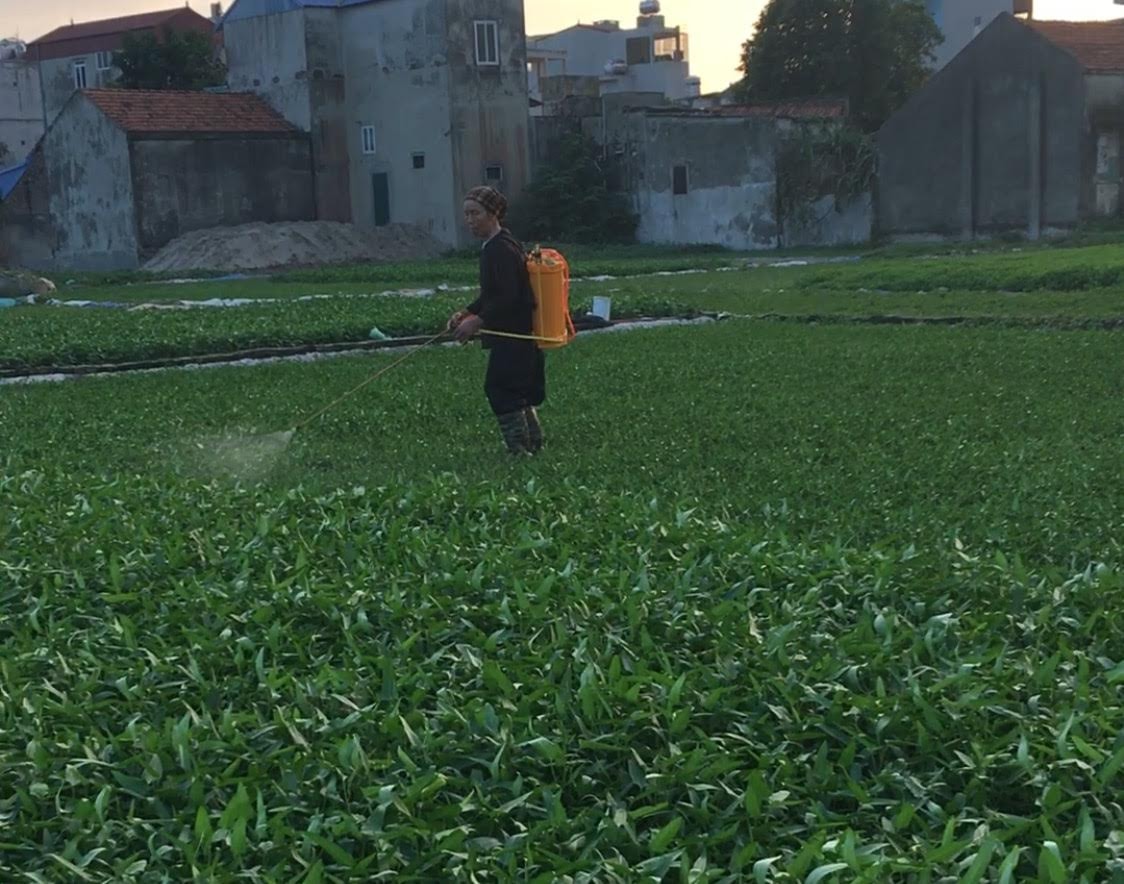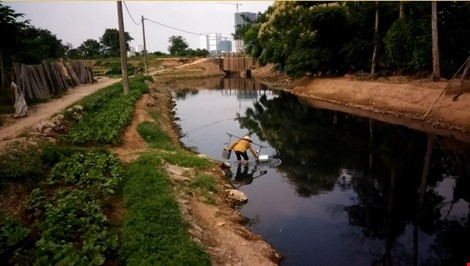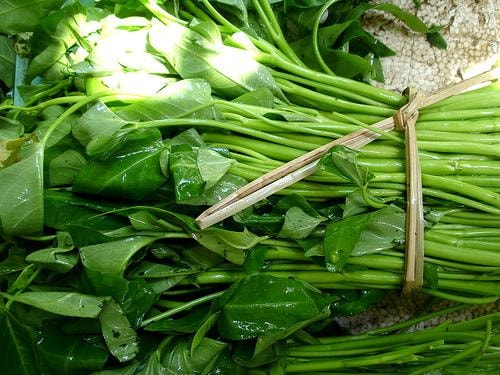Shiver with the young, plump green vegetables at the market
Information about growing vegetables using sewage or black, foul-smelling wastewater, watering with engine oil, “bathing” with pesticides, stimulants, soaking in chemicals, etc. appears more and more, making many people shudder. What is in the plump bundle of young vegetables that we buy to eat every day?
Fears about growing young vegetables
A few days ago, the Food Safety Department (Ministry of Health) said that the residue of pesticides and microorganisms on agricultural products used as raw materials for food processing still accounts for a high percentage.
According to this agency, every year, through proactive monitoring programs, tens of thousands of food samples are collected in different regions. The results show that pesticide residues exceeding the permitted threshold on vegetables, tubers, and fruits still account for about 3-5%, while in other countries it is only about 2%. Notably, in the first 10 months of 2015, the percentage of vegetables with pesticide residues exceeding the threshold was up to over 10%.
 |
| Pesticide abuse is common in large and small vegetable farms. |
Meanwhile, the Department of Agriculture, Forestry and Fisheries (Ministry of Agriculture and Rural Development) also informed that in August and September 2015, the Hanoi Department of Agriculture and Rural Development took 63 fruit and vegetable samples to test for multiple pesticide residues. The results showed that 14/63 fruit and vegetable samples had pesticide residues exceeding the permitted limit of Vietnam (accounting for 22.2%).
In the first 6 months of this year, authorities also discovered that nearly 4% of vegetable samples contained pesticide residues exceeding the permissible threshold.
In fact, the above figures only reflect a portion of the vegetables sampled. In the markets, many vendors admit that they have been selling all kinds of vegetables and fruits for decades without ever seeing the authorities come to take samples to test for safety.
In addition to the alarming story above, the unique vegetable growing "technology" of the farmer exposed by the media also makes people terrified.
Specifically, right in the middle of Hanoi, a vegetable field of dozens of hectares runs along the Cau Da River (Co Nhue, Bac Tu Liem), with all kinds of young, green vegetables, watered by the black, foul-smelling river water. That is the Cau Da River, a river famous for its pollution in Hanoi. After that, vegetables from this field are transported to supply many large and small markets in the inner city.
 |
| Many places even water vegetables with black, smelly water or with engine oil. |
Even more frightening, in early 2016, at a large water spinach growing area in Cu Chi district (HCMC), authorities also caught local people using black engine oil to water the water spinach fields.
They buy waste oil for 12,000 VND/liter, spray it on vegetable fields at a rate of 300 ml/1,000 m2 to kill planthoppers.
Meanwhile, information about vegetables being “bathed” in pesticides and “stimulators” has been appearing more and more. For example, in early April 2016, at a safe vegetable farm in Khai Thai commune (Phu Xuyen, Hanoi) - which supplies a huge amount of celery to Hanoi. Farmers used many pesticides, even the “super growth” HVP-Ga3 - a type of spray that helps vegetables grow extremely fast, and can be harvested in just 3 days.
"Swallow" enough poison
So, people have the right to ask: What's in the plump bundle of young vegetables sold at the market that we buy to eat at home every day?
According to Associate Professor Dr. Nguyen Duy Thinh - Institute of Biotechnology and Food Technology (University of Science and Technology), all types of plant protection chemicals are toxic, however, the level of toxicity depends on the dosage used and the length of the quarantine period.
 |
| Many people are uneasy with the young, plump vegetables at the market. |
There are types of isolation that require only 1 week to completely decompose the toxic content of the drug, some types can take up to a month, and some types cannot be decomposed (ie the drug is banned from use).
However, in reality, when using pesticides on vegetables, people often do not comply with technical requirements and rush to harvest and sell them before the quarantine period is over.
Accordingly, vegetables often contain a large amount of pesticide residue. As a result, consumers who buy these vegetables and fruits to eat pose a great threat to human health. Even if there is a large amount of residue and they eat it for a long time, there is a risk of kidney failure, liver damage and cancer.
Vegetables are also sprayed with growth stimulants, "boosted" to grow super fast, this is also extremely dangerous, will harm the health of users. In particular, vegetables that are harvested after 3 days of spraying growth stimulants are too fast, not guaranteed to be safe. Particularly vegetables watered with engine oil, grown in black water, there is a risk of contamination with heavy metals, especially lead.
As for split water spinach (used as a vegetable for hot pot, vermicelli, etc.) soaked in chemicals in Cu Chi to keep the vegetable green and fresh for a long time, which was discovered in early September this year, Dr. Tran Van Ky, Vietnam Association for Science and Technology Safety, confirmed that this is a colorant used in industry.
Meanwhile, this is a popular vegetable, requiring a large yield every day, so the water spinach itself is also sprayed with a lot of stimulants and pesticides by garden owners. This can easily lead to poisoning in users, with mild symptoms such as: abdominal pain, indigestion, rash, itching,... more severe symptoms include dizziness, nausea, vomiting,... requiring emergency hospitalization.
According to Vietnamnet
| RELATED NEWS |
|---|

